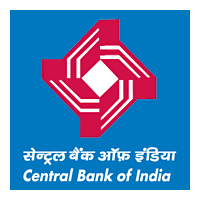THREE TIER “GRIEVANCE REDRESSAL MECHANISM” IN PEOPLE’S UNIVERSITY
A)Institute Level Grievances Redressal Committee:
The faculty/Staff/Employees will be free to represent his/her case to the Institute Level Grievance Redressal Committee. The individual grievances received by the University directly shall also be referred to this Committee for redressal.
The composition of the Institution Level Grievance Redressal Committee shall be as under:
| Dean/Principal of the Institutes | Chairperson |
| One Dean/Principal from other Institution(to be nominated by the Vice- Chancellor) | Member |
| One Senior. Professor from the Institution(to be nominated by the Vice-Chancellor) | Member |
| Administrative Officer of the Institution | Secretary |
The Committee after receipt of a written representation, if considers necessary, may invite at its discretion the aggrieved complainant for an oral submission. The Committee will summon the relevant papers from the concerned department/section to ascertain effective redressal of the grievances referred to it and shall submit its recommendations, to University within four weeks of receipt of such representation.
The Committee may meet as frequently as may be necessary. In case there is no response within the stipulated period or if the complainant is not satisfied with the recommendations of the Institute Level Grievance Redressal Committee, he/she may prefer an appeal to the University Level Grievance Redressal Committee within 30 days of receipt of decision of Institution Level Grievance Redressal Committee.
Any complaint or grievance regarding sections/departments other than the institutes shall be placed directly to University level Redressal Committee.
(B) University Level Grievance Redressal Committee:
The grievances of University faculty/Staff/Employees & appeals of aggrieved persons dissatisfied with decision of Institution level committee will be placed before the University Level Grievance Redressal Committee. The composition of the University Level Grievance Redressal Committee shall be as under:
| One Senior Head of Institution(Nominated by Vice-Chancellor & Approved by Honble Chancellor) | Chairperson |
| Two Deans/Principals to be nominated by the Vice-Chancellor & approved by Honble Chancellor | Member |
| One Professor to be nominated by the Vice-Chancellor(from the Institution with which the complainant is associated) | Member |
| Representative of HR | Member |
| Dean Academic Affairs | Secretary |
On a written request, the Committee may, at its discretion, invitethe aggrieved person for a personal hearing. The individual person/employee may take assistance of another person/ employee of the University, while presenting his/her case before the University Level Grievance Redressal Committee.
The Committee may hold its meeting from time to time as may be necessary. All the representations received by the end of previous month shall be deliberated upon in its meetings. An adjourned meeting shall be held on a date agreed upon in the meeting of the Committee. The Committee shall give its recommendations in the grievances referred to it within two month’s time. The University, if found necessary, may refer any representation(s) having collective repercussions and received by it directly, to this Committee for redressal.
(C ) Grievance Redressal at the Vice-Chancellor Level
In case there is no response within the stipulated period or if the complainant is not satisfied with the recommendations of the University Level Grievance Redressal Committee, he/she may prefer an appeal to- the Vice-Chancellor within 30 days time. The Vice-Chancellor and shall send its recommendation to Honble Chancellor may decide the appeal within 4-6 weeks time. The decision of Honble Chancellor, in such matters shall be final and there shall be no further appeal in the matter.
Note:
- If any interpretation of rules is involved, the Honble Chancellor shall be the competent authority and his decision will be final and binding upon the parties-
- Any grievances/complaint relating to sexual harassment will not be covered under these rules as there is a separate mechanism for addressing such matters.

